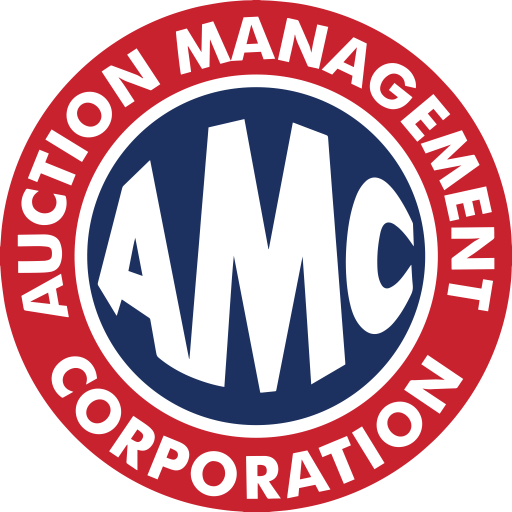Terms to Know in the Auction World
The most important Terms are the Terms and Conditions of the sale!
Terms and Conditions are rules one must agree to abide by in order to use our service. The Ts and Cs include general and special arrangements, provisions, requirements, rules, specifications, and standards that you contractually agree upon in order to become an approved bidder.
Important details to consider include the Proof of Funds, Earnest Money Deposit, Buyer’s Premium, Required Closing Date, Broker Commission, and the obligation to execute the Purchase and Sale Agreement (PSA) provided and wire transfer all payments on auction day. (terms to anchors)
What are Due Diligence Documents?
As a potential buyer, it is necessary to assess the risks of your investment and review all available information. Every transaction is different and there is no secret formula. However, it is important to do your Due Diligence and review all related documentation.
You will be able to find and download all available Due Diligence materials on the Documents tab, behind the Details of the auction webpage. These will generally include, but are not limited to, a County Assessor's Property Record and Tax Plat Map, Purchase and Sale Agreement (PSA) with Legal Description of Property (Exhibit A), and Broker Registration Form. If available, information on recent property tax payments, Quit Claim Deed, Declaration of Covenants and Restrictions, current Leases, and Appraisal documents will be provided for your review.
What is a Buyer’s Premium?
Every auction we conduct has an added buyer’s premium. The buyer’s premium amount will vary depending on the terms and conditions of the sale. It equates to a percentage of the winning bid and will be added to the final purchase price. For example, if the high bid on a property is $100,000 and the buyer’s premium is 10%, that makes the final purchase price $110,000. You must factor-in the buyer’s premium when you set your high bid amount, and be prepared to deposit your earnest money within 5 business hours if you are the highest bidder. See example below
What is Earnest Money?
In addition to a signed contract, an earnest money deposit is an essential element of real estate transactions. It assures the seller that you are serious about the purchase, and protects you, as the buyer, by securing your interest in the property. The earnest money deposit is generally between 10-20% of the total purchase price, which is the winning bid PLUS the buyer’s premium. Your earnest money can be deposited into our escrow account by delivery of a check or by bank wire, and we will provide you with all necessary information to make the transaction as smooth and efficient as possible. See example below:
Purchase Example:
| Winning Bid: | 147,500.00 |
| 10% Buyer’s Premium | +$14,750.00 |
| Total Purchase Price: | $162,250.00 |
| 20% Earnest Money Deposit | (- $32,450.00) |
| Remainder Due (30 Days) | $129,800.00 |
What does “As-Is Where-Is” mean?
You’ve probably noticed that an essential element of all auctions is the term “as-is, where-is”. This means that you are purchasing the asset (real estate or personal property) in it’s “as-is” condition with no requirement upon the seller to repair, improve, or otherwise expend money to alter the asset in any way. This means you must do your homework prior to bidding! For example, many lenders will only make loans on properties that meet certain habitability or condition requirements. If you are buying a house in “as-is” condition, it may or may not qualify for conventional financing. You need to be sure that you have available funds to close the transaction regardless of whether it meets conventional underwriting requirements.
Closing a Real Estate Transaction
A typical real estate auction closing deadline is 30 days after the sale. Read the Terms and Conditions and sales contract carefully to see where the closing must occur and how the closing costs are split between buyer and seller. The contract may specify a particular closing attorney or title company to close the transaction. Typically, the buyer pays most or all of the fees charged by the closing agent. Taxes and assessments are typically prorated and if you obtain financing to close the transaction, you should expect to pay all costs incurred for that financing. It is important to note that auction sales are never subject to financing, so you should have your financing lined up prior to bidding, as your earnest money may be forfeited if you cannot close due to insufficient funds.
The closing can occur at the closing agents office, or through email and overnight mail. For example the closing agent may email you the documents to sign, get notarized, and send back to the closing attorney. The balance of the money due can typically be sent to the closing agent’s escrow account via wire transfer or cashiers check.
Closing is always contingent upon the seller’s ability to deliver insurable title to the purchaser. In some states, the title policy is available prior to the auction for examination prior to bidding. In other states, the title is typically not ordered until after the contract has been signed and is delivered to the buyer to examine prior to closing. The contract will contain language regarding title examination procedure so that you can make certain you’re getting insurable title.




__footer.png?v=1732045352)


.png)